It’s not easy getting started in the kitchen. All these new terms, new techniques, and new ingredients can seem super overwhelming. Rest assured, you’re not alone. Everyone burns dishes, forgets about a pot of boiling water, and overcooks their hard boiled eggs. It’s all part of the learning process. Here are 10 tips for new chefs from the YumSizzle crew to help get you started in the kitchen. You got this!

1. Season Everything!
If there’s one thing on this list (other than knife skills) that I see beginner and experienced cooks doing, it’s habitual under seasoning. Bland food is boring and so easy to fix. This gets much easier with time and experience but don’t be shy with the salt and pepper, go for it! If you think your food is cooked right but is just missing a little something, it’s often just a pinch of salt.
2. Dry Off Your Meat
All that extra moisture on the outside of your meat isn’t helping at all, in fact it’s harming the Maillard reaction, a.k.a. browning (ugh that term) we’re looking for. The moisture on the outside of the meat is mostly made up of water. When that water hits the pan it’s going to steam, essentially boiling the outside of the meat instead of browning it. So, don’t think that all that extra juice from the package is adding to the flavor of your dish, it’s actually taking it away.
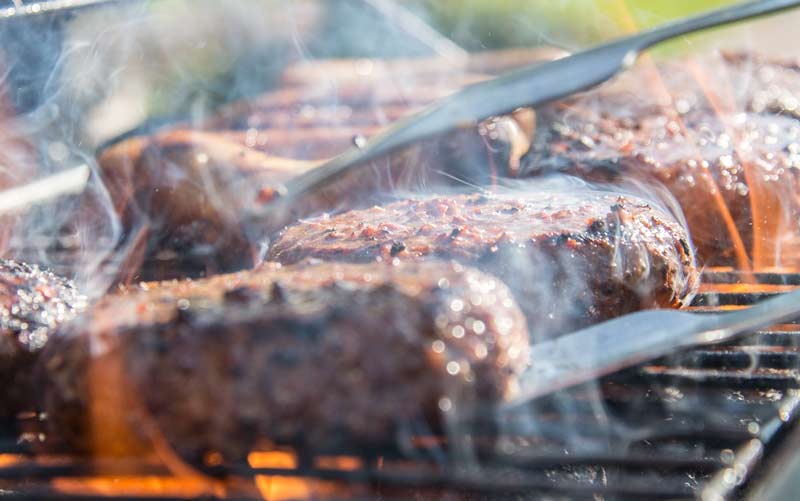
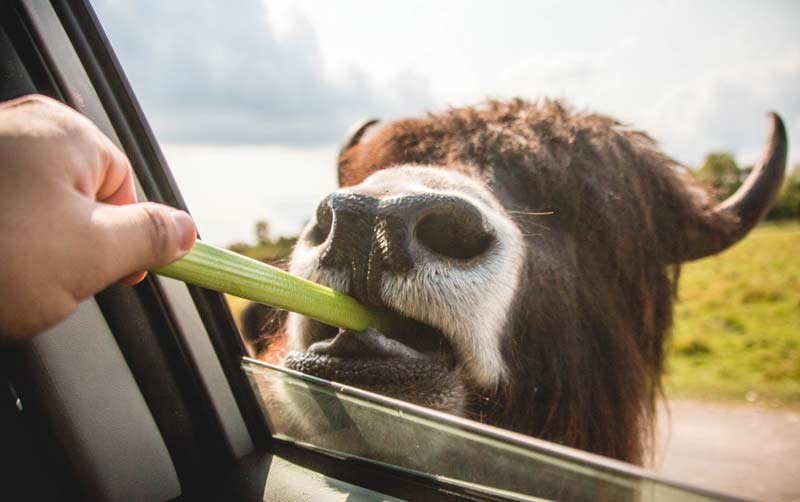
3. Taste While You Cook
I love this one because it means we ‘chefs’ get to sneaky eat while no one else is looking. Taste while you cook becomes especially important as recipes get more complicated or involve more time. I’ve fallen victim to making something too spicy or too salty because I wasn’t tasting while cooking. So, don’t be like me! Grab a spoon and slurp (try not to burn your mouth) that sauce or broth so you know if it needs a pinch of salt or a sprinkle of cayenne.
4. K.I.S.S.
Classic statement – applies in the kitchen. Keep. It. Simple. Stupid. If you struggle in the kitchen and find yourself constantly disappointed in the outcome of the dishes you’re cooking. Pull it back a little bit and focus on simple ingredients, and dishes with few instructions. There’s soooo much great food that only involves two or three ingredients and some seasoning. Focus on accomplishing the small tasks, then build upon those skills once you’ve mastered the basics.
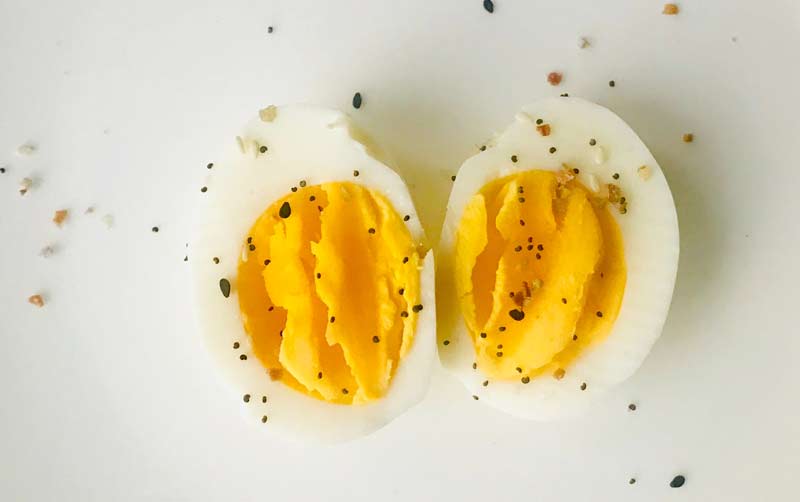
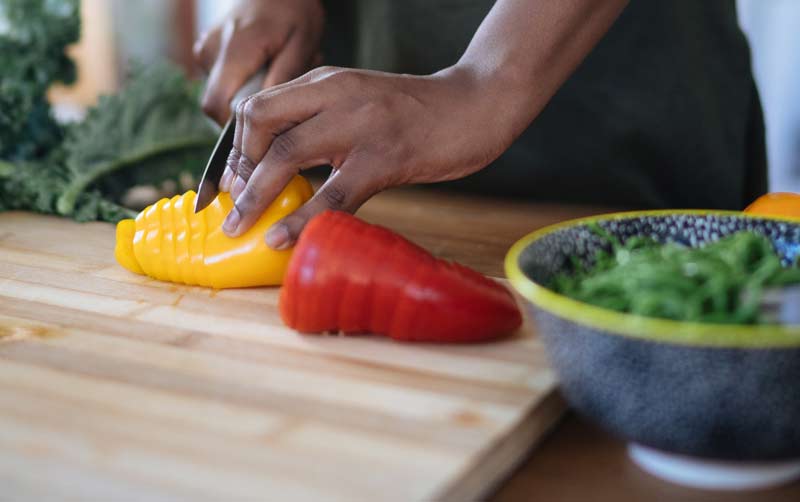
5. Mise en Place
What? Was that english? No, it’s not english, but it’s one of the most important skills in the kitchen for a whole bunch of reasons. Mise En Place mean ‘everything in its place’. In the kitchen what this means is getting all (or as much as possible) the prep work done before you start cooking. I used to run around the kitchen frantically, constantly burning things in hot pans and forgetting about boiling pots, but then I started preparing the components of my dish before I started cooking. Generally this just means chopping up all your veggies, getting any aromatics (like garlic, ginger, and chiles) chopped up, measuring out liquids and seasonings. This is also a great time to get organized with your cooking times. For example mushrooms and slice onions take about the same time to get nice an soft and browned, by chopping them up ahead of time you can get them in the pan at the same time. Bada bing bada boom.
6. Use Sharp Knives
Get yourself a sharp knife, and take care of it. Most knife related injuries are because the knife isn’t sharp enough to easily cut through food (but definitely still sharp enough to cut through skin). If your knife is having trouble getting through and onion it’s definitely time to give it some swipes on the honing steel. If your knife has seen a lot of action in the kitchen bring it to a professional to get it sharpened! You can buy some wet stones and learn how to sharpen knives yourself but I like to leave it to the professionals.

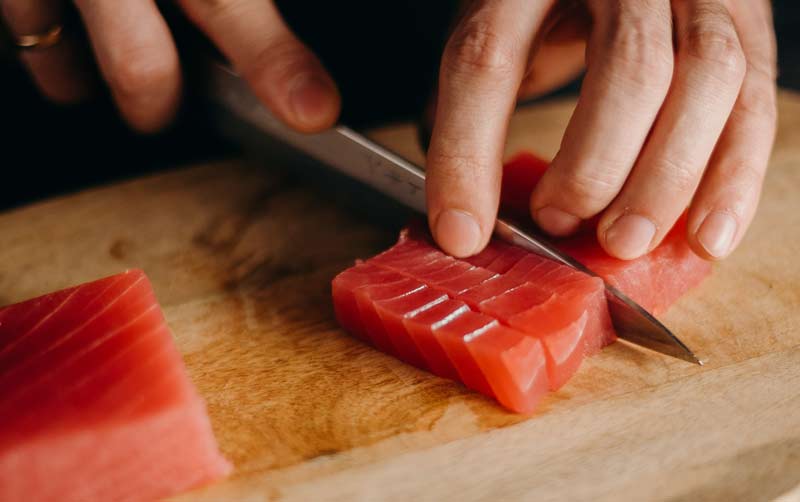
7. Learn Basic Knife Skills
There’s a great video from Jacques Pepin showing how to use a knife. One of the many things he’s famous for is chopping and looking at the camera at the same time. I wouldn’t recommend this to a beginner, but basic knife skills can be a godsend in the kitchen and can really help keep your fingers safe, and increase the speed at which you cook. This is one of our favorite tips for new chefs.
8. Think About Timing
This tip is a little abstract and it’s something that takes time to figure out, but once it clicks, it makes a HUGE difference, especially for home cooks. Before you start cooking a meal, spend a couple of minutes planning out the steps before you get going. If you’re following a recipe read it over again and separate out your ingredients for each step. Each component of the dish is going to take different times, rice takes longer to cook than salmon, and dry pasta (including boiling the water) takes longer to cook than shrimp. The end goal is to have everything finished at the right time. This is a real skill, but you’ll find that after a while it becomes second nature and you’ll be making less mistakes in the kitchen.
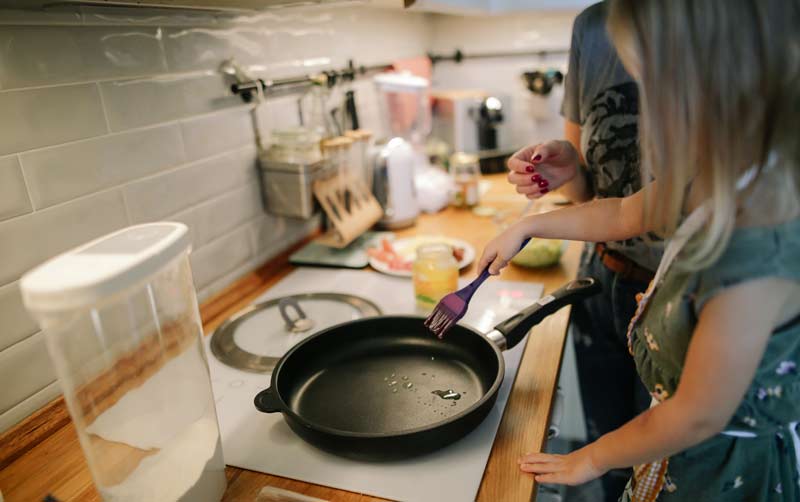

9. Don’t Be Afraid To Experiment
The best way to learn is through failure. I don’t mean combine ketchup and vanilla ice cream and think it’s going to taste amazing. I mean see what happens if you add a little different spices to a dish, or substitute one kind of vinegar for another, or use panko instead of regular bread crumbs, maybe deglaze with a beer or wine instead of chicken stock. Little things that can make a big difference in a dish. They might not taste amazing! But I’ll let you in on a secret…most of the things I cook don’t become recipes, most of them are learning experiences so that when I sit down to make a complete dish it comes out perfect.
10. You’re In Charge!
That’s right. You. You’re the captain of this vessel to flavor town and don’t let anyone or any ingredient convince you otherwise. I’ve been saying the phrase “food can sense your fear” for years because I truly believe it. Bread dough knows when you think it’s going to be sticky or shrink, chicken knows when you’re scared of it burning, pasta can tell when you’re afraid of over cooking it. If you’re confident in the kitchen, then nothing can stop you. You might still over cook the salmon or crisp the french fry a little too much, but confidence can come after that mistake in knowing what you did wrong. Just like Bob Ross, only happy mistakes.
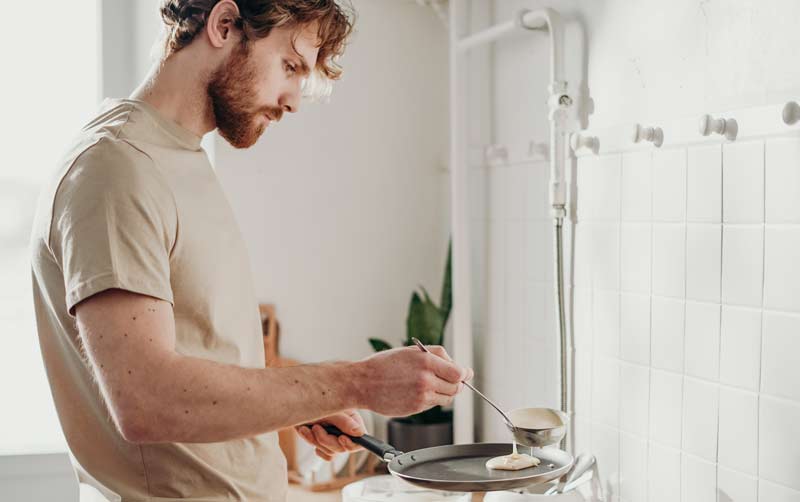

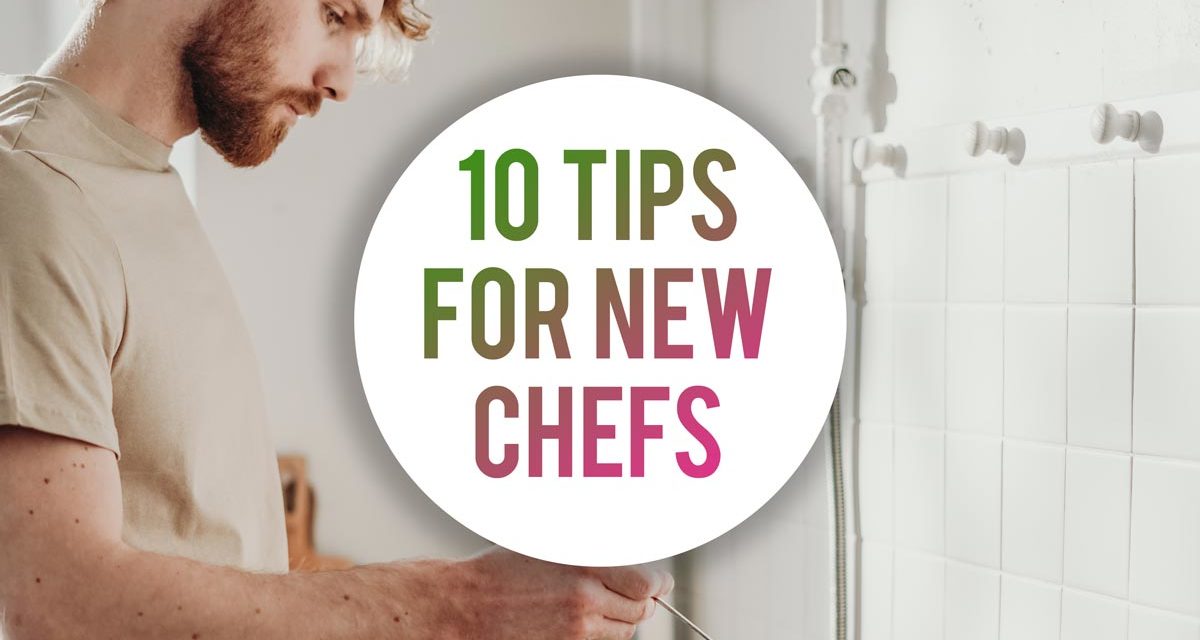



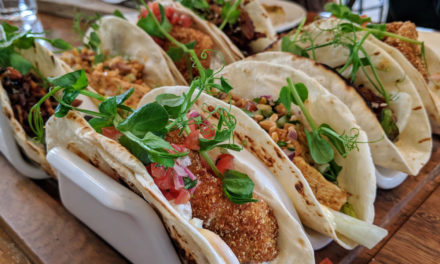

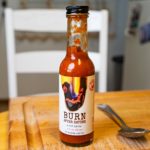



Great content! Super high-quality! Keep it up! 🙂
Thanks! Just trying to help out new chefs!